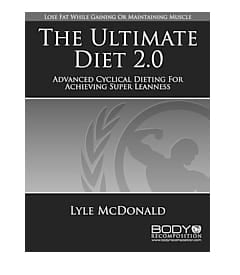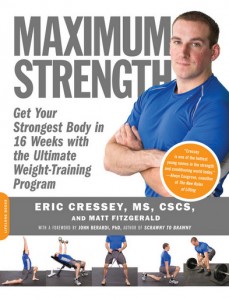As winter approaches and many athletes consider covering up and gaining weight, it seems prudent to discuss four common muscle gain mistakes that I see people making. So let’s get to it.
#1: Not Eating Enough
Outside of poor training (which can be either too much or too little), not eating enough is the number one mistake I see most trainees making who can’t gain muscle. This is true even of individuals who swear up, down and sideways that they eat a ton but no matter what they can’t gain weight. It’s been said that “hardgainers tend to be overtrainers and undereaters and there is much truth to that.
Almost invariably, when you track these big eaters, they really aren’t eating that much. Research has routinely shown that overweight individuals tend to under-estimate food intake (e.g. they think they are eating much less than they actually are) but in my experience ‘hardgainers’ are doing the opposite: vastly overestimating how much they are actually eating in a given day, or over the span of a week.… Keep Reading

